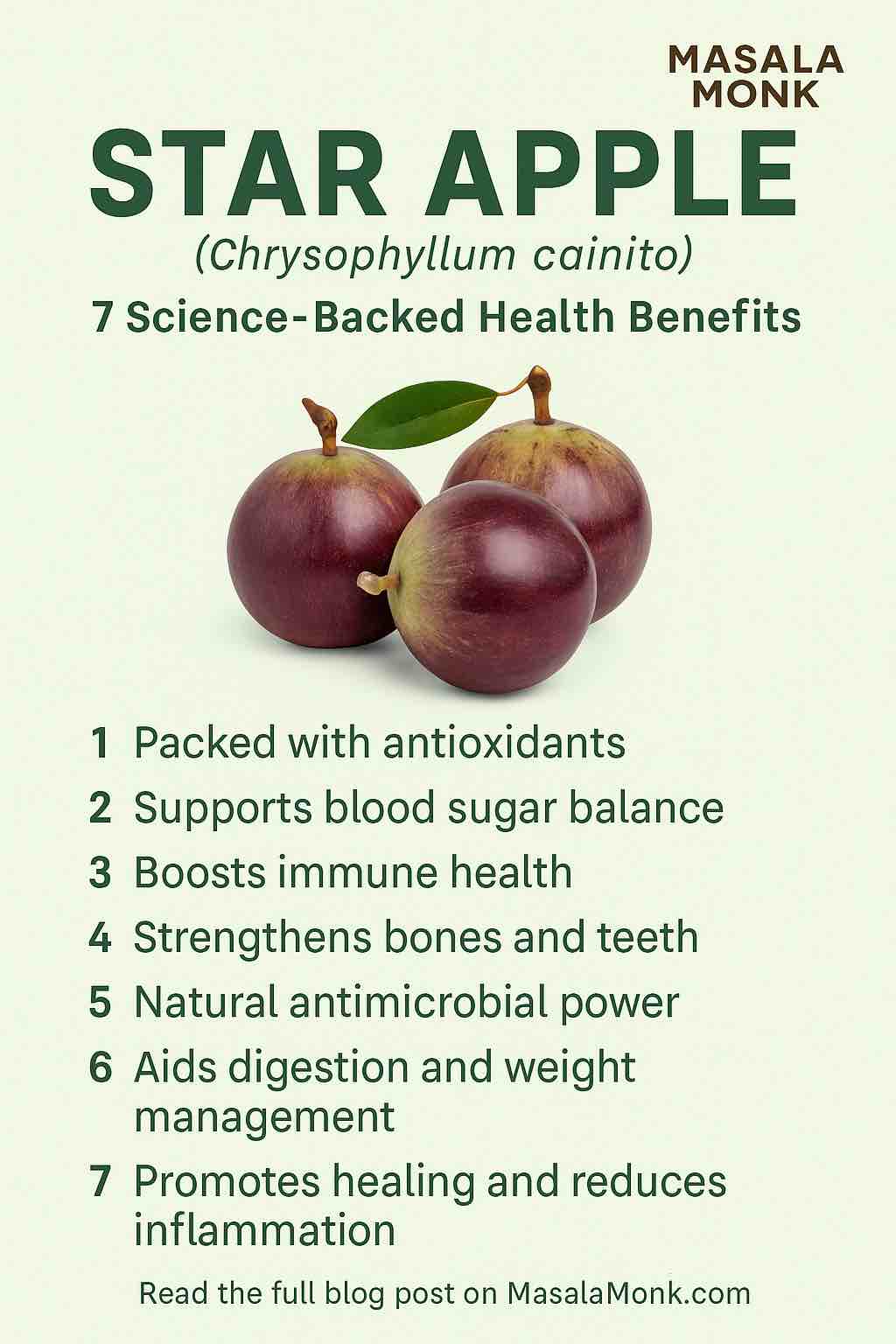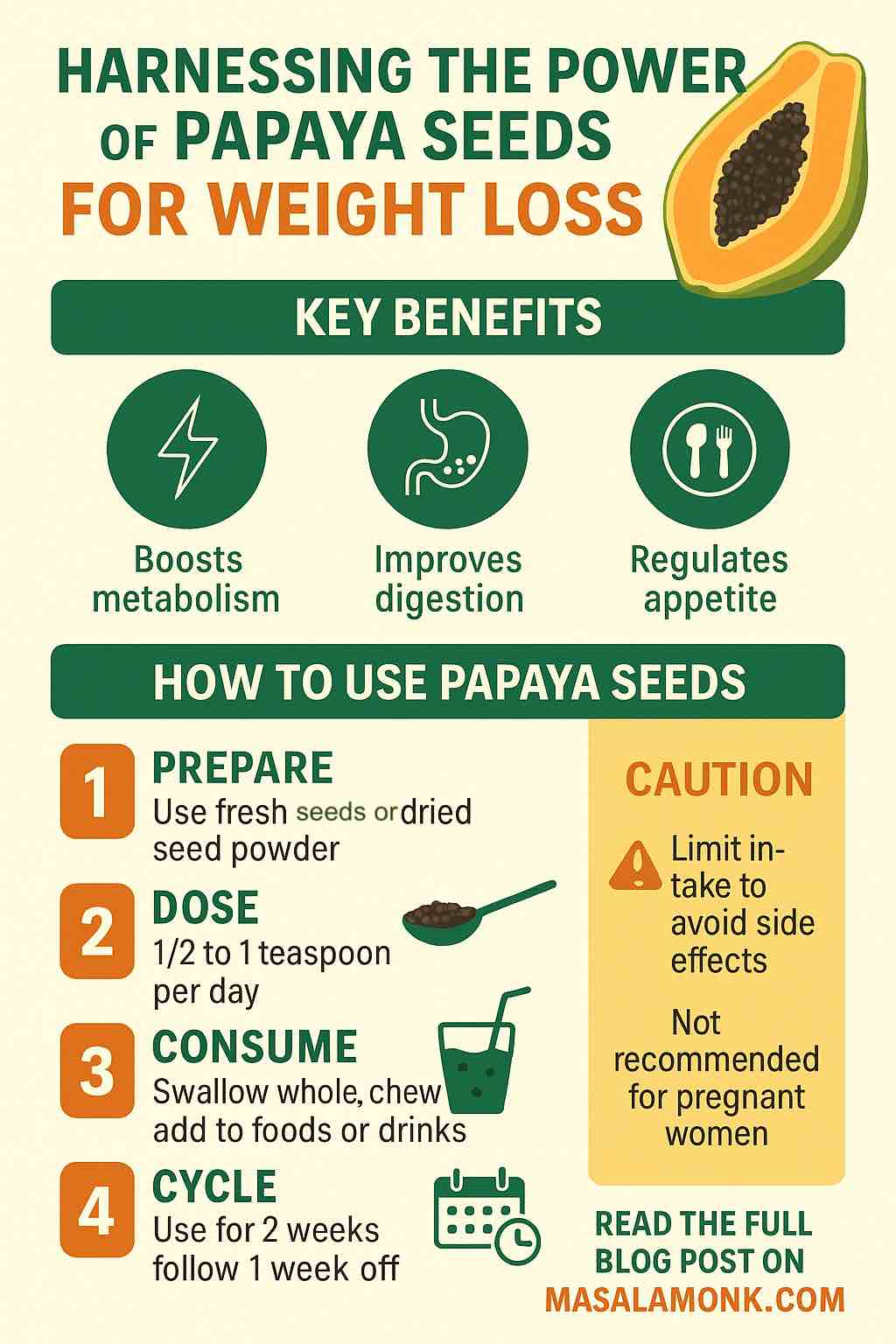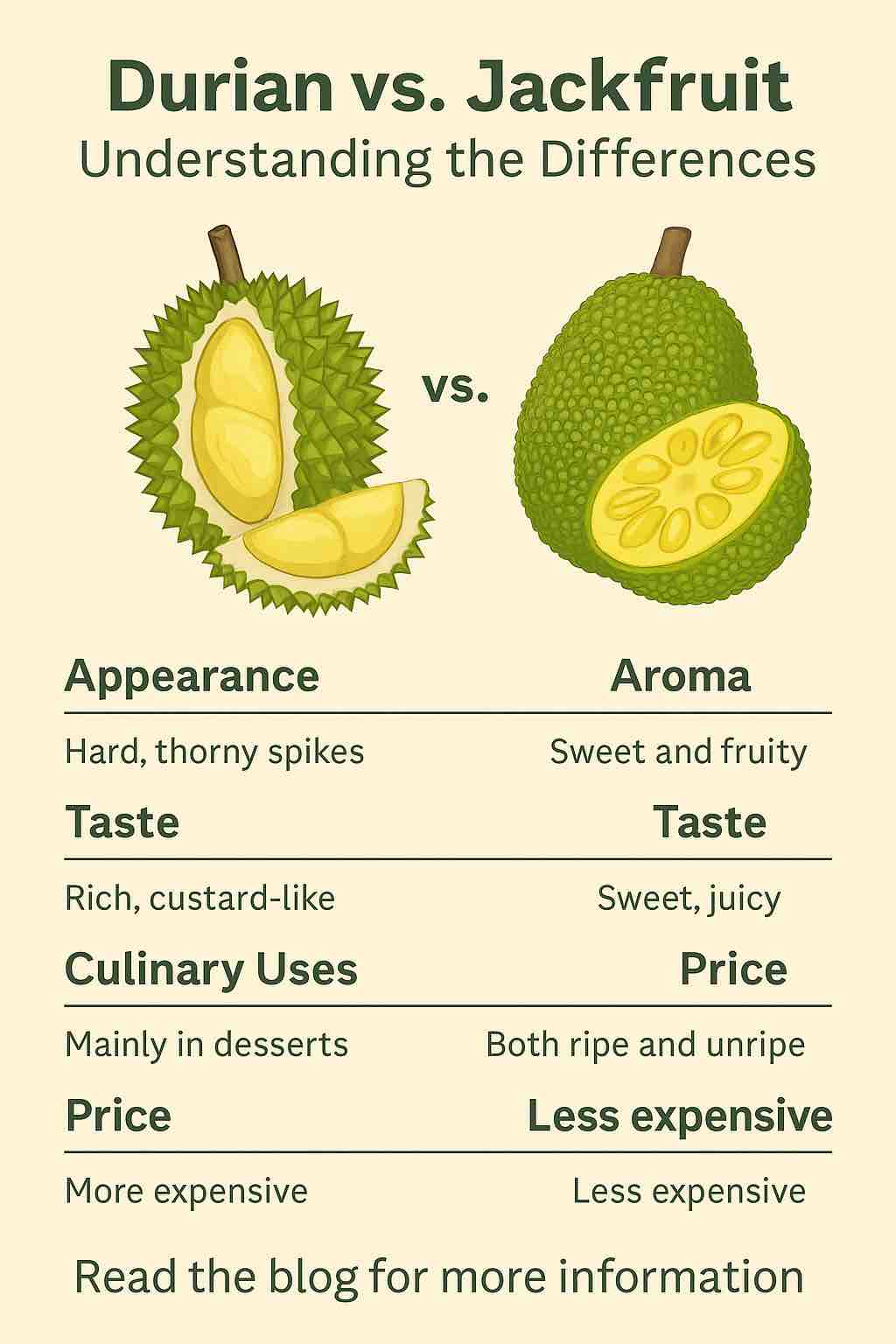
Have you ever bitten into a star apple—its skin shimmering in deep purple or green, the flesh sweet and creamy, and the core gleaming with a star pattern? Beyond its captivating looks and unique flavor, Chrysophyllum cainito, commonly known as star apple, is quickly gaining attention from health enthusiasts and researchers worldwide.
But what’s behind the buzz? In this deep dive, we explore the 7 proven health benefits of star apple, the science behind them, and practical ways you can use this exotic fruit to boost your well-being.
🌿 What Is Star Apple? A Quick Overview
Star apple (Chrysophyllum cainito) is a tropical fruit native to the Caribbean and Central America, but now cultivated in Southeast Asia, Africa, and beyond. Its most striking feature? Cut the fruit crosswise, and you’ll spot a natural “star” embedded in the pulp. Both the purple and green varieties are edible, with the green variety tending to be slightly less sweet.
Nutrition Snapshot
- Calories: ~67 kcal/100g
- Vitamins: Vitamin C, B-complex (B1, B2, B3), A, E
- Minerals: Calcium, magnesium, phosphorus, potassium
- Phytonutrients: Flavonoids, alkaloids, saponins, triterpenoids
1. 🛡️ Packed With Antioxidants
Star apple is bursting with antioxidants—especially phenolics, flavonoids (like quercetin and catechin), and vitamin C.
What does this mean for you?
Antioxidants protect your cells from oxidative stress caused by pollution, stress, and poor diet. Consuming antioxidant-rich foods has been linked to lower risks of cancer, heart disease, and neurodegeneration.
Research highlight:
Multiple lab studies (see source) confirm that extracts of the fruit, peel, and even leaves strongly scavenge free radicals and reduce lipid peroxidation, making star apple one of the top tropical antioxidant fruits.
2. 🍬 Supports Blood Sugar Balance
Worried about blood sugar spikes? Studies show that star apple can help regulate glucose levels:
- Animal studies: Diabetic rats given star apple leaf extracts showed dramatic drops in blood glucose, comparable to standard diabetes drugs like glibenclamide and metformin.
- Mechanism: Compounds in star apple inhibit enzymes (like α‑glucosidase) that break down carbs into sugars, and help the body use insulin more effectively.
Practical tip:
While research is promising, star apple shouldn’t replace your medication, but it’s a smart fruit choice for anyone managing prediabetes or looking to keep blood sugar stable.
3. 💪 Boosts Immune Health
Thanks to its high vitamin C and polyphenol content, star apple supports your immune system on multiple fronts:
- Fights off infections
- Speeds up wound healing
- May reduce the risk or severity of common colds
Did you know?
Just 100g of star apple pulp provides up to 15–20% of your daily vitamin C needs!
4. 🦴 Strengthens Bones and Teeth
Forget chalky supplements! Star apple is naturally rich in calcium, phosphorus, and magnesium—all essential for strong bones and teeth.
Why it matters:
Long-term intake may help prevent osteoporosis and dental issues, especially as you age.
5. 🦠 Natural Antimicrobial Power
Traditional healers have used star apple bark and leaves to treat wounds and infections for centuries—and modern science agrees!
- Lab tests: Extracts of the peel, pulp, and seeds have been shown to inhibit common bacteria (Staphylococcus, E. coli, Salmonella) and fungi (Candida, Aspergillus).
- How it works: Phytochemicals like alkaloids, saponins, and tannins disrupt microbial cell walls and slow pathogen growth.
Home use:
While not a replacement for antibiotics, applying a poultice of star apple leaf (under proper guidance) is a folk remedy for minor skin infections.
6. 🏃 Aids Digestion and Weight Management
With its impressive fiber content, star apple:
- Keeps you fuller, longer (helping control appetite and snacking)
- Prevents constipation and supports healthy gut bacteria
How to eat it:
Enjoy the flesh raw, add to fruit salads, or blend into smoothies for a creamy, naturally sweet texture.
7. 🩹 Promotes Healing and Reduces Inflammation
Beyond boosting your immune system, compounds in star apple actively fight inflammation and speed up healing:
- Animal research: Topical star apple leaf extracts helped wounds close faster and improved collagen synthesis, even outperforming some commercial wound ointments.
- Everyday benefit: Reducing chronic inflammation may lower your risk of heart disease, diabetes, and arthritis.
⚠️ Star Apple Safety: What You Need to Know
- Eat only the pulp: The seeds, rind, and latex are not edible (can be mildly toxic).
- Allergies are rare: But always introduce new foods in moderation, especially for children and those with sensitivities.
- Not a substitute for medicine: While promising, scientific studies are still mostly in animals and labs—use as a food, not a drug.
🥗 How to Enjoy Star Apple (Recipes & Tips)
Simple ways to eat star apple:
- Raw and Chilled: Slice, remove seeds and skin, and eat the jelly-like pulp with a spoon.
- In Fruit Salad: Pairs beautifully with mango, pineapple, and banana.
- Smoothies: Blend with coconut water, banana, and a squeeze of lime for a tropical shake.
- Frozen Treats: Puree and freeze into popsicles or sorbet.
Pro tip:
The green variety is less sweet and more refreshing, while the purple is creamier and sweeter. Try both!
🌱 Summary: Why Add Star Apple to Your Diet?
Star apple isn’t just a treat for the eyes and taste buds—it’s a nutritional powerhouse backed by real science. From antioxidant and immune support to blood sugar and gut health, its benefits are wide-ranging and practical for everyday wellness.
Whether you’re a foodie, a health nut, or simply curious, give star apple a try—and let its natural “star” brighten your diet.
References & Further Reading
- Phytochemistry and Pharmacological Activities of Chrysophyllum cainito: A Review (NCBI)
- Antioxidant Activity of Star Apple Extracts (Scielo)
- Nutritional Composition and Antimicrobial Effects (Netjournals)
Have you tried star apple before? Share your experience or recipes below!
10 Star Apple (Chrysophyllum cainito) FAQs
1. What does star apple taste like?
Star apple has a mildly sweet, creamy, and slightly grape-like flavor. The texture is soft and jelly-like, especially around the “star” pattern at its core.
2. Can I eat the skin and seeds of star apple?
No, only the pulp is edible. The skin, seeds, and especially the sticky latex can be mildly toxic and may cause stomach upset.
3. Is star apple safe for diabetics?
Yes, when eaten in moderation. Research suggests it may help regulate blood sugar, but always consult your doctor before making dietary changes if you have diabetes.
4. How do I know when a star apple is ripe?
Ripe star apples are slightly soft to the touch and have a glossy, unblemished skin. Avoid fruits that are rock-hard or have broken skins.
5. Are there any allergy risks with star apple?
Allergic reactions are rare, but as with any new fruit, try a small amount first, especially for children or those with food sensitivities.
6. Can star apple help with weight loss?
Yes, its high fiber content promotes fullness and helps control appetite, making it a good addition to weight management plans.
7. How do I store star apple?
Keep ripe star apples in the refrigerator and eat within a few days. Unripe fruits can be left at room temperature until they soften.
8. What are the main nutrients in star apple?
Star apple is rich in vitamin C, dietary fiber, calcium, magnesium, and natural antioxidants like flavonoids and phenolic compounds.
9. Can I use star apple for home remedies?
Traditional medicine uses the leaves and bark for wound healing and infections, but always use caution and consult a professional before using for medical purposes.
10. Is star apple safe during pregnancy?
Star apple is generally safe when eaten as part of a balanced diet during pregnancy, but as with all tropical fruits, consume in moderation and discuss with your healthcare provider.













